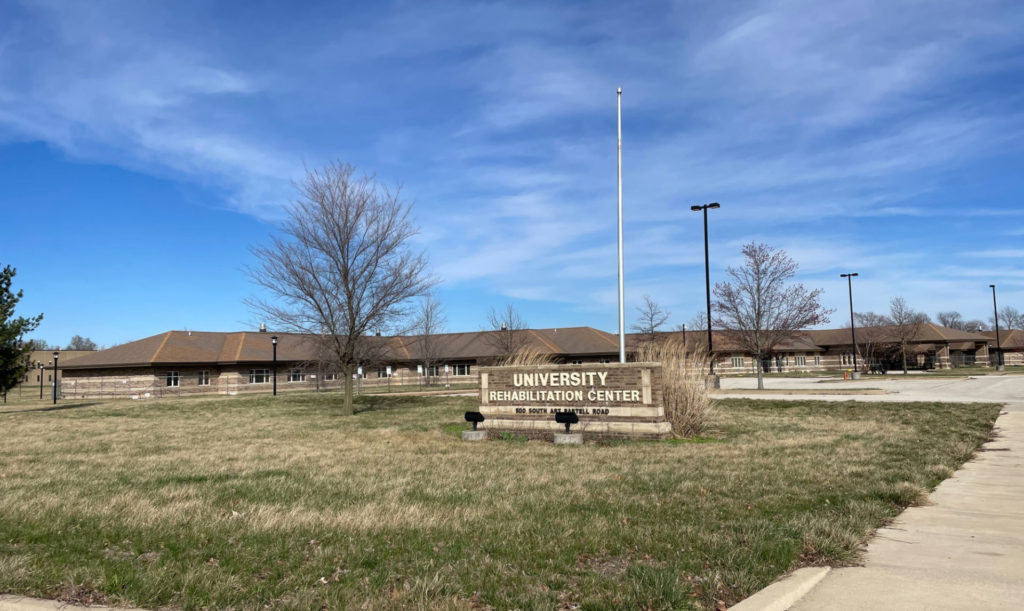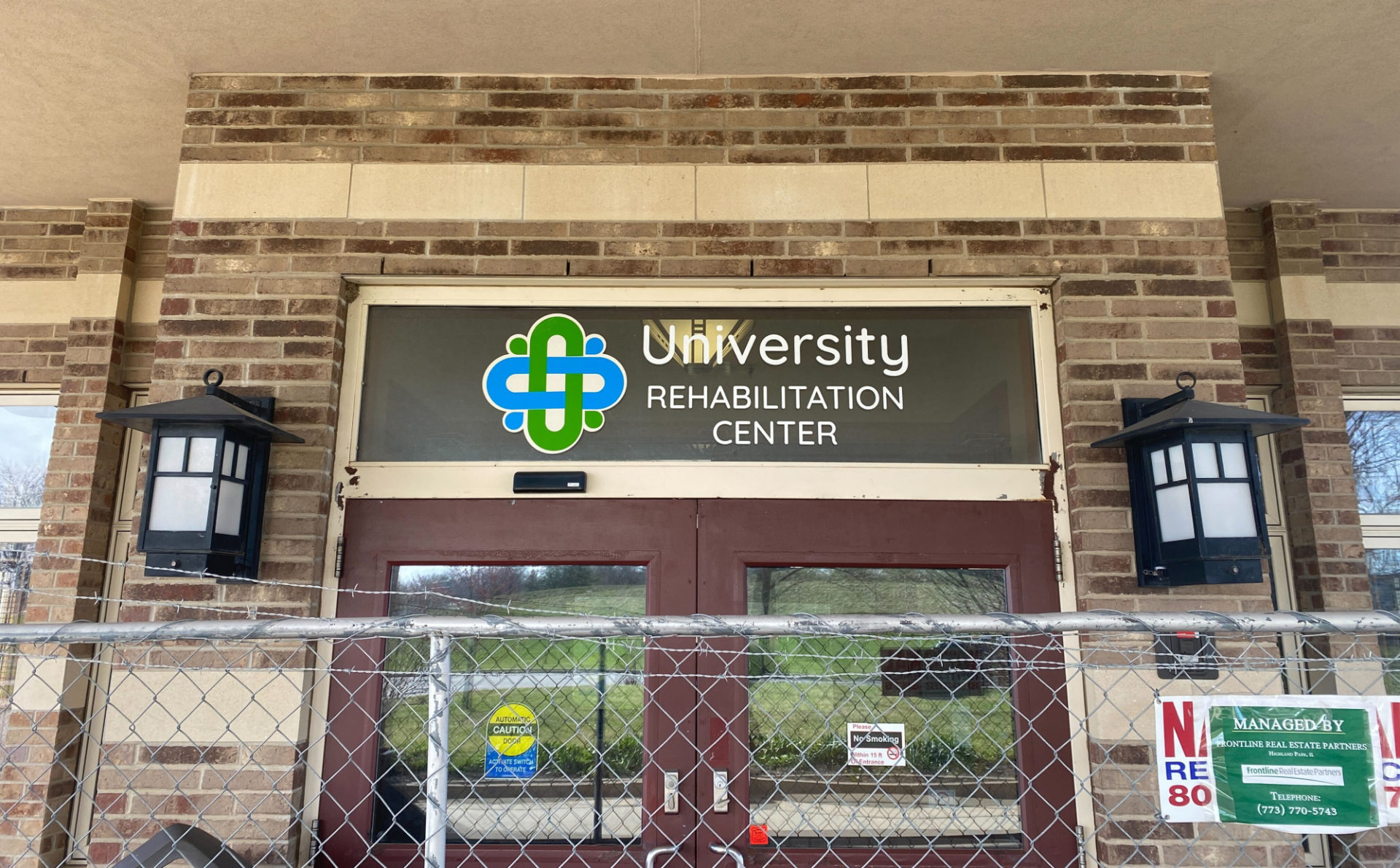In 2018, the Champaign County Board sold the Champaign County Nursing Home. In 2023, that facility was shut down by the private market entity that bought it. In five short years, our once publicly-run elder care facility was commodified, gutted, and closed.
This outcome, devastating for our community, was a predictable one. Residents warned the county government years ago that offloading this public service to the profit-driven market was doomed to fail. Despite the prescience of our community, the majority of Champaign County Board members voted to sell the nursing home.
Today the building is possessed by a bank, which is trying to sell the property. The last remaining defense the county government has is a binding covenant that was placed in the deed when it was sold. This covenant confines the private owner — whoever that might be — to only run that facility as a nursing home until at least 2027.
Now, to the shock and dismay of many, some of the very Democrats in county government who opposed the sale in the first place are trying to remove that covenant from the deed, allowing the bank to sell it off and become something else. The county is also nowhere near addressing the massive shortage of nursing home beds caused by this disaster.
But how did we get here? Why would government officials discharge a government-run service to the profit-driven private market?
At the time, some on the County Board saw the services provided by the nursing home as lacking. This was augmented by the fact that the facility was running a deficit. Republicans were fixated on the nursing home’s debt, and used it as a bludgeon in their war against the county’s ownership and operation of the facility.
What they didn’t mention is that the county government had many options to preserve ownership of the public nursing home, including levying a more progressively-applied tax to fund its operation. But unsurprisingly, they neglected to seriously consider that option. They ran full speed with the idea that they could offload the nursing home by fixating on the debt the nursing home was incurring, erroneously claiming that its financial situation was intractable. All of this — all of their rationale to throw our nursing home to the vultures in private finance — were untrue.
Those at the top regularly conflate revenue and profit, claiming that without substantial profit, the viability of any organization is endangered. This is wrong. Profit is defined as “financial benefit realized when revenue generated from a business activity exceeds the expenses, costs, and taxes involved in sustaining the activity in question.”

In plain language, this is entirely different from revenue. Profit doesn’t pay your salary as an employee and it certainly doesn’t help the consumer. The notion that a provider of a public good or service, especially a government, must be profitable is nonsensical and dangerous. Government programs, in no uncertain terms, have no need to be profitable. But these talking points served their purpose; it gives bad actors in government cover to sell our programs to financial sharks who would rather gut them for cash. With the help of a few Democrats, the Republicans successfully sold our nursing home.
That public to private transfer is called privatization.
Supporters of privatization regularly cite supposed benefits of the private market, including “efficiency” and “competition.” They insist, without any basis, that government management of projects is costly, slower, or ineffective in comparison to private alternatives. These are substantively-empty and dishonest attacks. The truth is, the private sector is structurally unfit to manage public services.
While capitalists herald the supposed advantages of the private market, even a cursory review of how private and public finance works reveals their privatization plans to be harmful to the vast majority of us. If for no other reason, the profit motive itself is disqualifying. At its core, for-profit institutions place the realization of excess revenue before all else. They need to minimize labor costs, the expenses associated with any facilities and supplies needed to provide a good or service, and ensure the leftover revenues — profits — funnel to the top. This will inevitably cut the services to the public. This mutates what was once a service guided only by serving the most people possible into a cost-cutting operation meant to extract as much excess value for the ownership class as possible.
This isn’t merely theoretical, we have the numbers to prove it.
The American healthcare system illustrates the public versus private dichotomy very clearly. The administrative costs of administering care, such as billing and insurance-related expenses, claims management, and other non-clinical costs to care, are shockingly more expensive in the private market than the public sector. Private insurance averages around 17% of their total operating expenditure on these costs while Medicare spends around 2% to 5% on the same expenses. Public clearly beats private handily on cost savings and efficiency.
If there were any question that the debt-hysteria and profit-fascination are laughable, the complete failure which is the privatization of our once-publicly owned nursing home answered it.
But that doesn’t stop conservatives in both political parties from supporting privatization. Some of those proponents often disagree with the very notion that government tax and fund services we depend on. Others who support these moves either feel the same or misguidedly believe the provision of service can be better addressed by the private market.
The efforts to further privatize are attacks on the basic, limited help the public currently receives. They are also growing. The former Champaign County Nursing Home, the current dismantling of the United States Postal Service, and the Republican Party’s plan to wholly privatize Medicare are just three pressing examples.
We must learn from the commodification of the former Champaign County Nursing Home and keep our eyes on profiteers circling our remaining public services. We must also look to “industries,” which presently operate under the profit-motive; critical services like healthcare, utilities, and other things which should be universally available to people, and take those services into public ownership.
Part of learning this lesson and expanding public power will be remembering this on Election Day. When you vote, remember who sold off the critical eldercare our friends and neighbors depend on; remember the politicians who sacrificed this community’s long-term security for others’ short-term profits.








